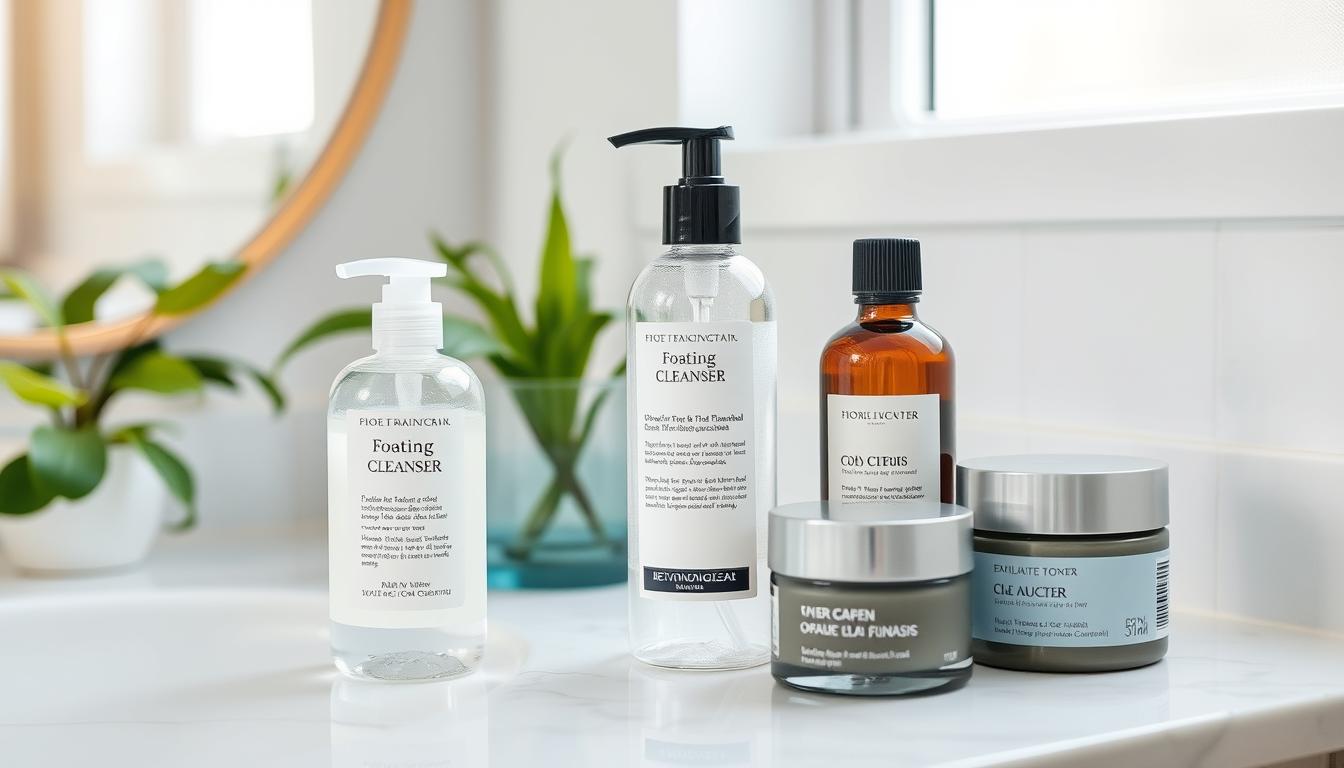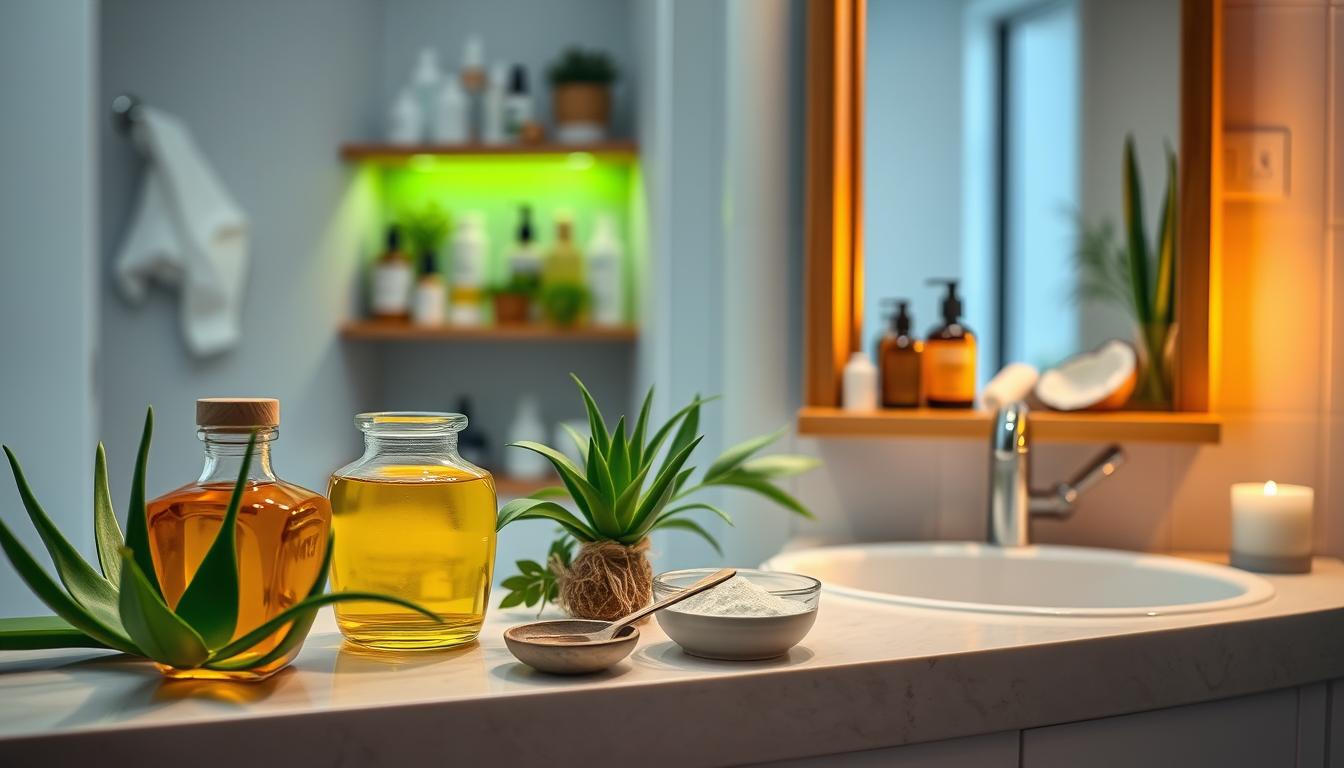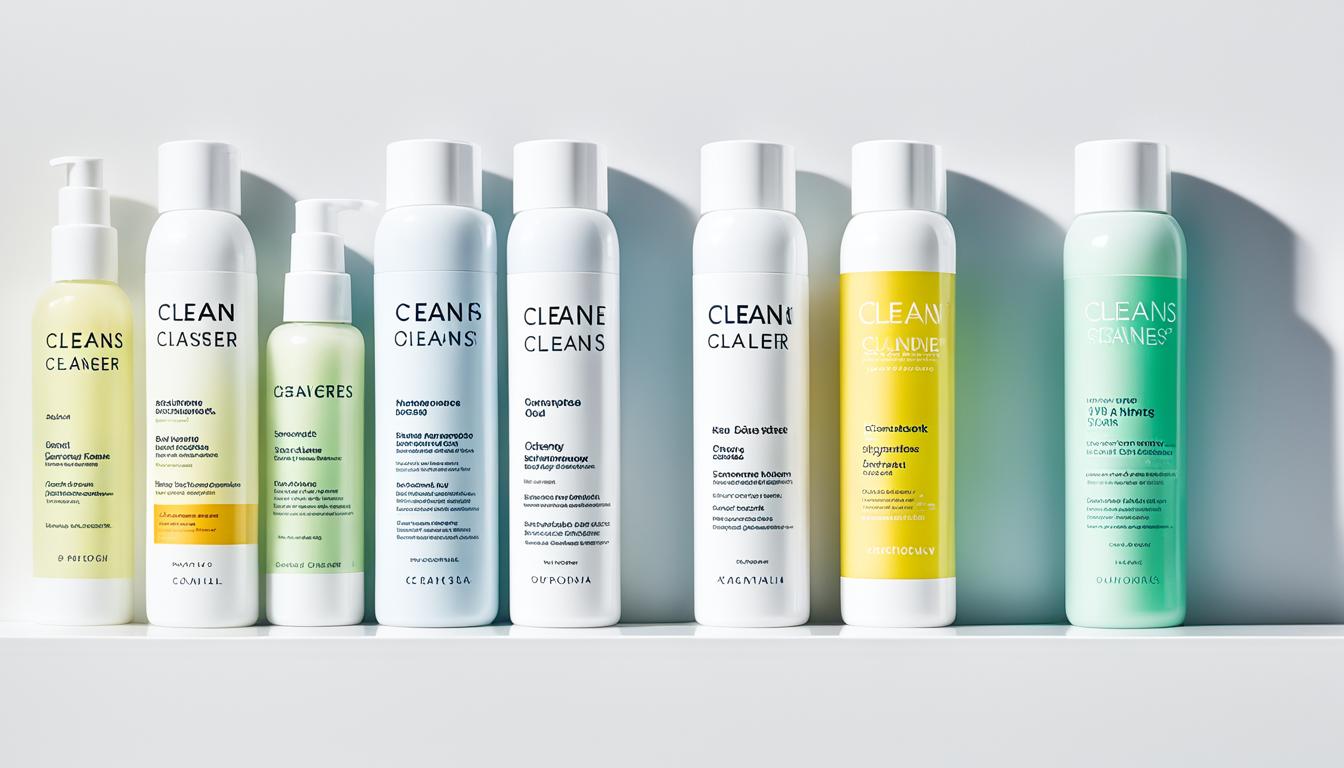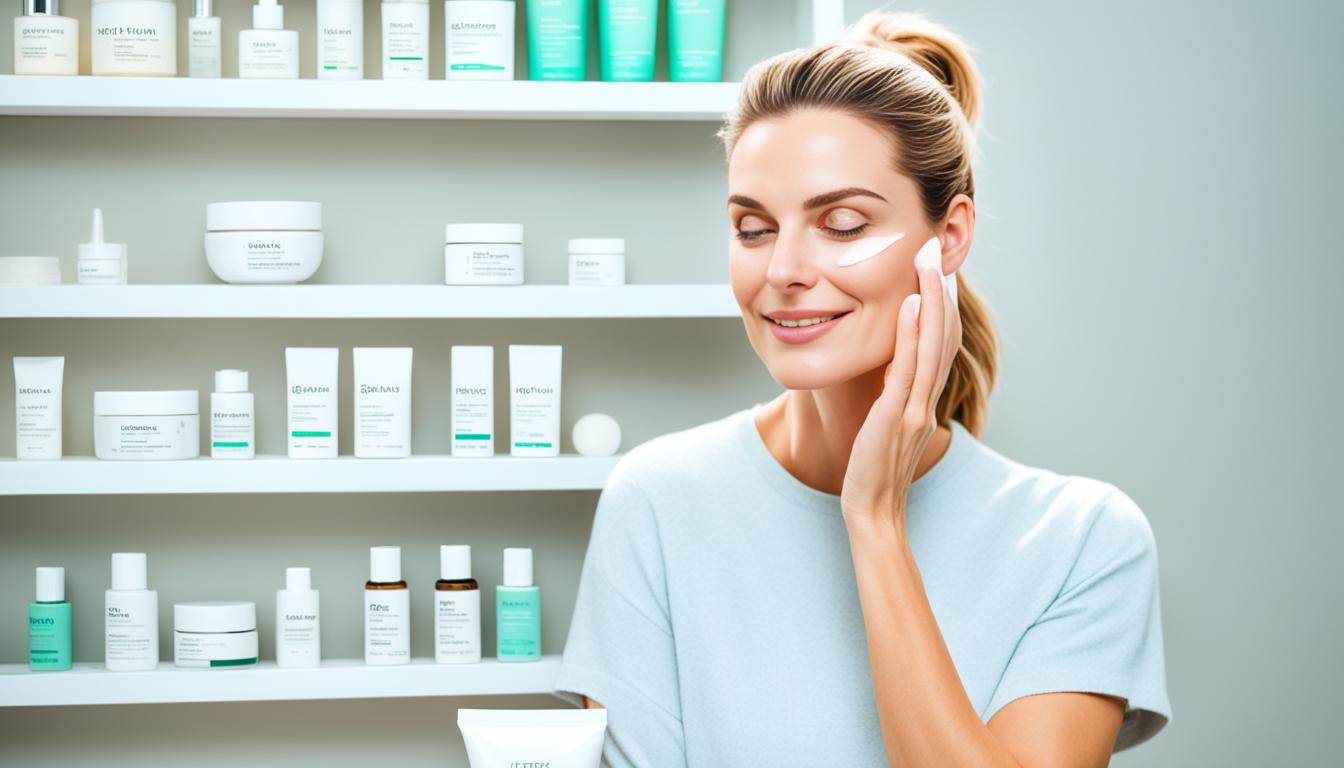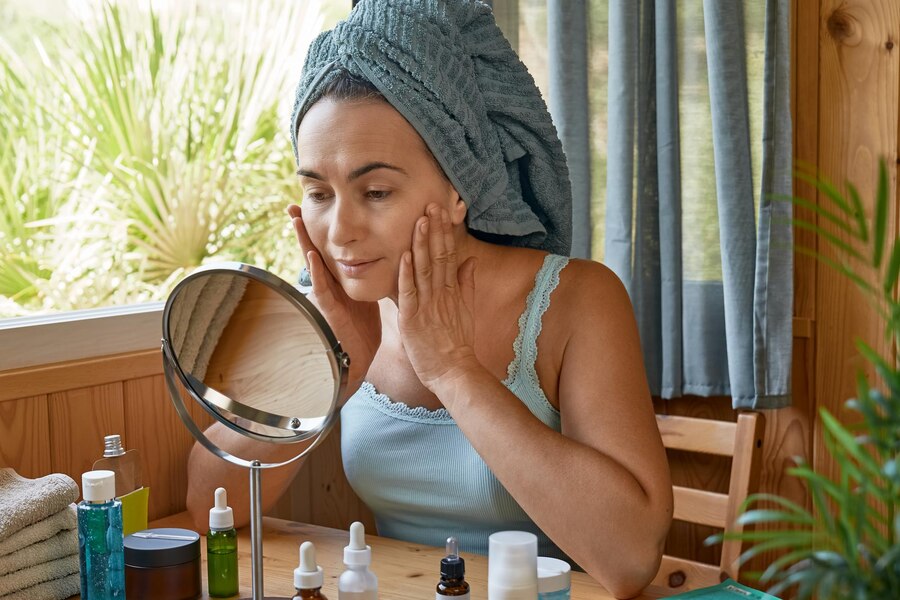Summer Skincare Routine Tips For Glowing Skin
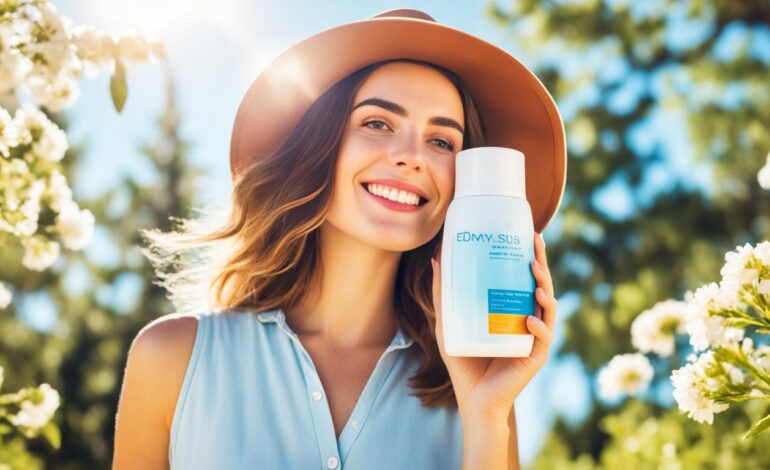
As the summer months approach, it’s important to adapt your skincare routine to keep your skin healthy and glowing. The combination of heat, humidity, and increased sun exposure can take a toll on your skin if you don’t take proper care of it. In this article, we will provide you with essential tips for a summer skincare routine that will help you maintain radiant and healthy skin even in the summer.
One of the most important steps in any summer skincare routine is protecting your skin from the sun. Sunscreen is a must-have during the summer months to shield your skin from harmful UV rays that can cause sunburn, skin damage, and increase the risk of skin cancer. Choose a broad-spectrum sunscreen with at least SPF 30 and remember to reapply every two hours for optimal protection.
In addition to sunscreen, it’s crucial to keep your skin hydrated during the summer. The hot weather can lead to excessive sweating, which can dehydrate your skin and leave it looking dull and dry. Use a lightweight moisturizer to keep your skin hydrated and prevent it from becoming oily. Additionally, drink plenty of water throughout the day to maintain moisture levels from within.
Exfoliation is another essential step in a summer skincare routine. By gently exfoliating the skin, you can remove dead skin cells and unclog pores, preventing acne breakouts and keeping your skin smooth and even-toned. Choose a gentle exfoliator that suits your skin type and use it one to two times a week for best results.
Antioxidants play a vital role in protecting the skin from environmental damage and maintaining a youthful appearance. Incorporating a serum with antioxidants, such as vitamin C, into your summer skincare routine can help combat free radicals, boost collagen production, and reduce the appearance of fine lines and wrinkles.
Lastly, consult with a dermatologist to develop a personalized skincare regimen that addresses your specific skin concerns. They can recommend products and treatments tailored to your skin type, whether you have oily skin, dry skin, acne-prone skin, or any other specific needs. A board-certified dermatologist can provide expert guidance and ensure that you are taking the best care of your skin during the summer months.
Key Takeaways:
- Protect your skin from the sun with a broad-spectrum sunscreen and reapply every two hours.
- Keep your skin hydrated by using a lightweight moisturizer and drinking plenty of water.
- Gently exfoliate your skin to remove dead skin cells and unclog pores.
- Incorporate a serum with antioxidants, like vitamin C, to protect and rejuvenate your skin.
- Consult with a dermatologist to develop a personalized skincare regimen for your specific needs.
Step 1: Hydrating Cleanser
A hydrating cleanser is an essential first step in any summer skincare routine. It is crucial to choose a cleanser that effectively removes makeup, dirt, and oil without stripping the skin of its natural oils. Look for a creamy or gentle cleanser that can hydrate the skin while maintaining its natural moisture balance. A lightweight cleanser is ideal for the summer months when we want to keep our skin feeling fresh and clean without any heaviness or residue.
Also Read : Shield Your Skin: 10 Best Sunscreens For Summer Protection
Using a hydrating cleanser not only helps to remove impurities but also provides much-needed hydration to the skin. This is especially important during the summer when the skin can become dehydrated due to exposure to the sun, heat, and air conditioning.
Also Read : Best Skin Care Products For Dry Skin Revealed
Hydrating cleansers work by gently cleansing the skin while retaining its natural oils, preventing any dryness or tightness. They help to keep the skin hydrated, soft, and supple. By incorporating a hydrating cleanser into your summer skincare routine, you can ensure that your skin remains clean, refreshed, and well-moisturized throughout the day.
Also Read : Best Skin Care Products For Oily Skin Essentials
There are various hydrating cleansers available in the market that cater to different skin types and concerns. Whether you have dry, oily, or combination skin, there is a hydrating cleanser suitable for you. Look for cleansers that contain nourishing ingredients like hyaluronic acid, glycerin, or botanical extracts.
| Benefits of a Hydrating Cleanser | Recommended Hydrating Cleansers |
|---|---|
|
|
Step 2: Hydrating Toner
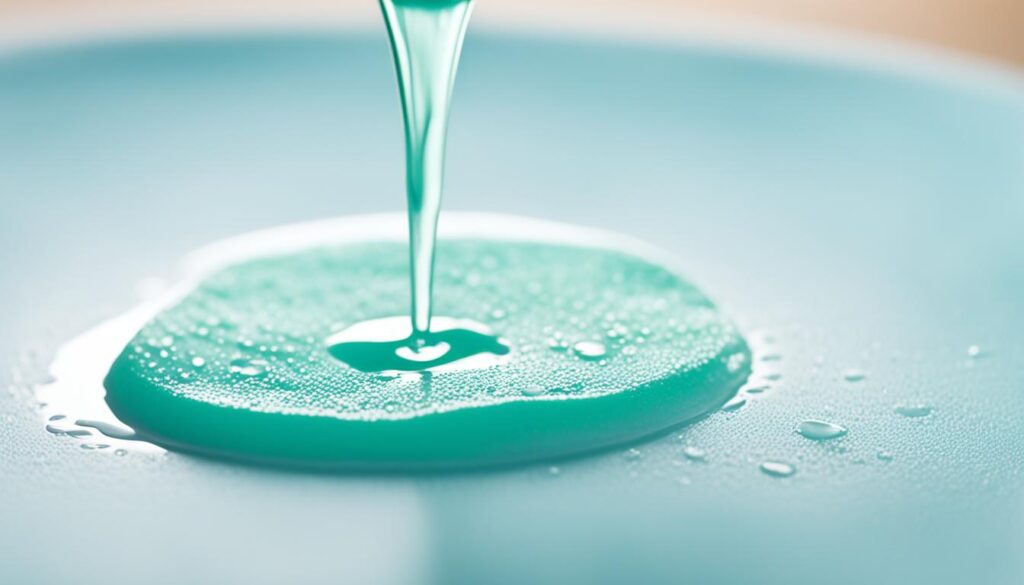
In the second step of your summer skincare routine, it’s time to introduce a hydrating toner or essence to your regimen. These products are designed to provide lightweight moisture to the skin, helping to keep it hydrated and supple throughout the day.
Also Read : How To Use Vitamin C For Glowing Skin
A hydrating toner is especially beneficial for those with dry or dehydrated skin, as it works to replenish moisture and improve the skin’s overall texture. Look for toners or essences that are specifically formulated to provide hydration and smooth the skin’s surface.
Also Read : 8 Signs Of Unhealthy Skin
One of the key benefits of using a hydrating toner is its ability to balance the skin’s microbiome. The skin’s microbiome is the ecosystem of microorganisms that naturally reside on its surface. When this ecosystem is in balance, it helps to improve moisture retention and promote healthy skin function.
Additionally, a hydrating toner can help to improve moisture retention, ensuring that your skin stays hydrated for longer periods of time. This is especially important during the summer months when the heat and sun exposure can cause the skin to become dehydrated.
To incorporate a hydrating toner into your skincare routine, simply apply a small amount to a cotton pad or the palm of your hand and gently pat it onto your face and neck. Follow with the rest of your skincare products to lock in the hydration and maximize the benefits.
Remember, consistency is key when it comes to skincare, so be sure to use your hydrating toner daily to reap the rewards of its lightweight moisture and skin-balancing properties.
Next, let’s move on to step 3 of your summer skincare routine: the hydrating serum. This powerful potion will take your hydration game to the next level and leave your skin feeling quenched and radiant. Keep reading to learn more!
Step 3: Hydrating Serum
The third step in your summer skincare routine is to incorporate a hydrating serum. A hydrating serum is a lightweight, water-based product designed to add intense hydration to your skin without weighing it down. It is an essential step for quenching thirsty skin and maintaining a healthy moisture balance.
When choosing a hydrating serum, look for key ingredients like hyaluronic acid, niacinamide, ceramides, squalane, and aloe vera. Hyaluronic acid is known for its ability to attract and retain moisture, while niacinamide helps to strengthen the skin barrier and improve skin texture. Ceramides and squalane help to replenish and lock in moisture, while aloe vera soothes and hydrates the skin.
Hydrating serums can be used alone or as part of a layered approach, where you apply multiple serums to address different skincare concerns. Layering serums allows you to customize your skincare routine and target specific areas of concern, such as hydration, brightening, or anti-aging.
Here is an example of how you can incorporate a hydrating serum into your summer skincare routine:
- Cleanse your face with a hydrating cleanser to remove dirt, oil, and impurities.
- Follow with a hydrating toner to balance the skin’s pH and prep it for better absorption of the serum.
- Apply a few drops of your chosen hydrating serum to your face and neck, gently patting it into the skin.
- Allow the serum to absorb for a few minutes before moving on to the next step.
By incorporating a hydrating serum into your summer skincare routine, you can effectively boost hydration levels and maintain a healthy and radiant complexion. Remember to choose serums that are lightweight and suit your skin’s needs to achieve the best results.
Benefits of Hydrating Serums:
“Hydrating serums are a game-changer for those with dry or dehydrated skin. They provide an extra layer of hydration, leaving the skin plump, smooth, and glowing.” – Dr. Sarah Lopez, Board-Certified Dermatologist
Now that we have covered the importance of a hydrating serum, let’s move on to the next step in your summer skincare routine: a water-cream moisturizer.
Step 4: Water-Cream Moisturizer
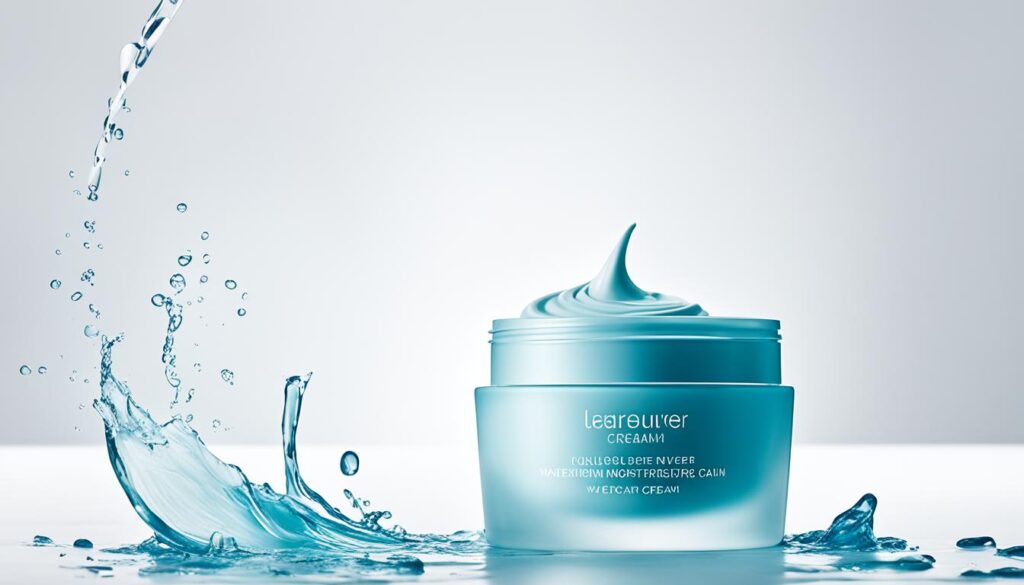
In the fourth step of your summer skincare routine, it’s time to lock in moisture with a water-cream moisturizer. This lightweight and hydrating moisturizer is the perfect addition to keep your skin nourished and refreshed. Its non-greasy formula ensures that your skin feels comfortable and not weighed down, even in hot and humid weather.
When choosing a water-cream moisturizer, look for ones that contain Japanese superfoods. These ingredients help to smooth skin texture and balance oily skin, giving you a healthy and radiant complexion. The water-based formula of the moisturizer allows for quick absorption, leaving your skin feeling plump and hydrated without any greasiness.
Applying a water-cream moisturizer after your hydrating serum helps to seal in all the beneficial ingredients and lock in moisture, ensuring that your skin stays hydrated throughout the day. Its lightweight texture makes it suitable for all skin types, including oily and combination skin.
Here are some key benefits of using a water-cream moisturizer in your summer skincare routine:
- Locks in moisture: The water-cream moisturizer helps to create a protective barrier on your skin, preventing moisture loss and keeping your skin hydrated.
- Lightweight and non-greasy: The lightweight formula absorbs quickly into the skin without leaving behind a greasy residue, making it perfect for hot and humid summer months.
- Hydrating and nourishing: The moisturizer replenishes and nourishes your skin, providing essential hydration and nutrients for a healthy and glowing complexion.
- Smooths skin texture: The Japanese superfoods in the moisturizer help to improve skin texture, leaving your skin smooth, soft, and supple.
- Balances oily skin: If you have oily or combination skin, a water-cream moisturizer can help to balance oil production and prevent excess shine, giving you a more balanced complexion.
Remember to apply the water-cream moisturizer as the next step after your hydrating serum. Gently massage it into your skin using upward strokes, focusing on areas that need extra hydration. Give it a few minutes to fully absorb before moving on to the next step in your skincare routine.
Now that you’ve locked in moisture with a water-cream moisturizer, it’s time to move on to the final step of your summer skincare routine: sunscreen. Protecting your skin from harmful UV rays is crucial for maintaining healthy and glowing skin, especially during the summer months.
Step 5: Sunscreen
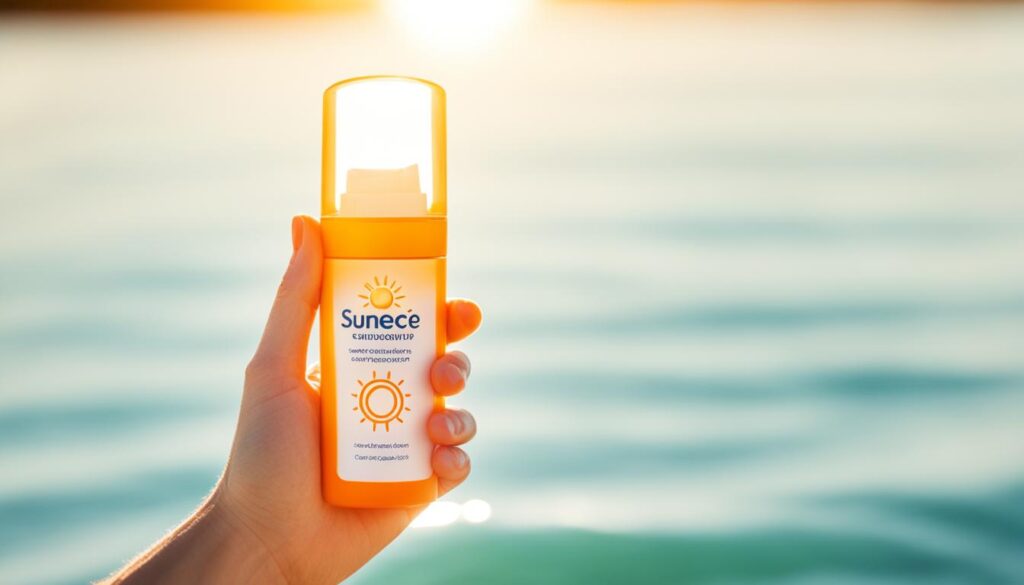
Protecting your skin from harmful sun damage is crucial, making sunscreen the final and most important step in your summer skincare routine. When choosing a sunscreen, opt for a broad-spectrum formula with a minimum SPF of 30 to effectively shield your skin from both UVA and UVB rays.
Remember to reapply sunscreen every 2 hours, especially during prolonged sun exposure. This ensures continuous protection throughout the day. By consistently applying sunscreen, you can help minimize the appearance of fine lines and wrinkles, prevent dark spots, and reduce the risk of skin cancer.
Additional Summer Skincare Tips

In addition to following a core summer skincare routine, incorporating these additional tips will help you keep your skin healthy and glowing throughout the summer months:
- Stay Hydrated: Drink plenty of water throughout the day to keep your skin hydrated from within. Proper hydration is essential for maintaining healthy skin.
- Gently Exfoliate: Regular exfoliation helps remove dead skin cells and promotes a smoother complexion. Use a gentle exfoliator once or twice a week to avoid irritating your skin.
- Avoid Tanning Beds: Tanning beds can cause long-term damage to your skin and increase the risk of skin cancer. Opt for self-tanning products or embrace your natural skin tone.
- Opt for Lightweight Moisturizers: During the summer, switch to lightweight moisturizers that provide hydration without feeling heavy on the skin. Look for non-greasy formulas that won’t clog your pores.
- Limit the Use of Retinoids: Retinoids can make your skin more sensitive to the sun. If you use retinol or other retinoid products, make sure to apply sunscreen and limit sun exposure.
- Prevent Acne: Combat breakouts by incorporating products with salicylic acid or benzoyl peroxide into your skincare routine. These ingredients help prevent acne and keep your skin clear.
- Moisturize Even If Not Dry: Even if your skin doesn’t feel dry, it’s crucial to moisturize daily. Moisturizers help maintain the skin’s barrier function and prevent moisture loss.
- Create Your Go-To Summer Skincare Regimen: Customize your skincare routine to address your specific needs and concerns. Consider consulting with a dermatologist to create a personalized summer skincare regimen.
By incorporating these additional summer skincare tips into your routine, you can enhance the health and appearance of your skin, keeping it radiant all summer long.
Expert Tip: Hydration is Key
“Staying hydrated is one of the most crucial aspects of summer skincare. Not only does proper hydration benefit your overall health, but it also helps maintain your skin’s moisture balance. Drink enough water and incorporate hydrating products into your routine for plump, glowing skin.” – Dr. Emily Johnson, Board-Certified Dermatologist
Importance of Sunscreen for Healthy Skin
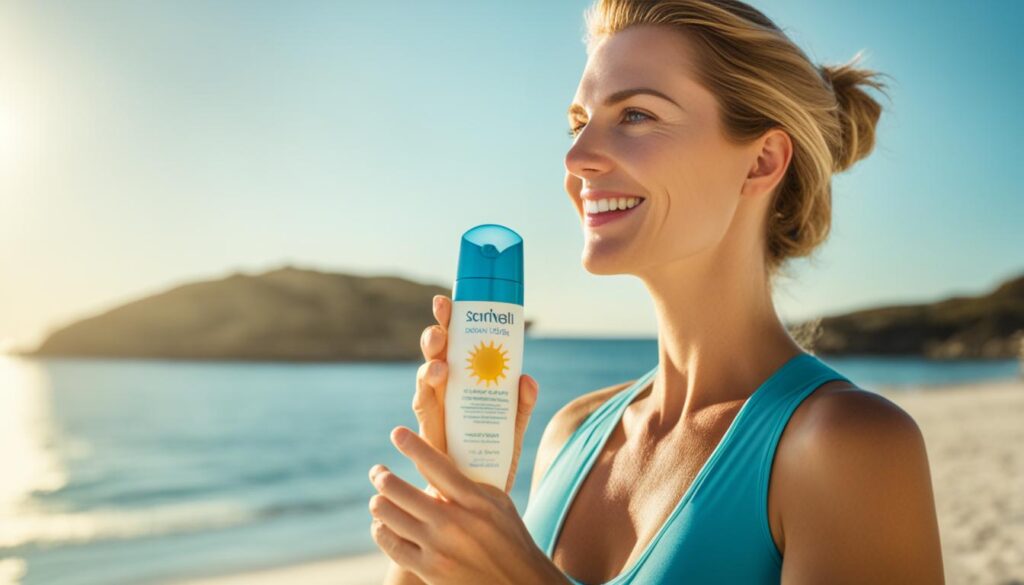
Sunscreen is a crucial component of a healthy skincare routine. Not only does it help protect your skin from harmful UV rays, but it also aids in the prevention of skin cancer, including the most dangerous form, melanoma. Applying sunscreen daily is essential to maintain the health and youthfulness of your skin.
Experts recommend using a sunscreen with a minimum Sun Protection Factor (SPF) of 30. However, opting for a higher SPF provides added protection against the sun’s damaging effects. Remember to apply sunscreen before sun exposure to shield your skin from harmful rays and reapply it every two hours to ensure continuous protection.
Seeking shade during peak sun hours, typically between 10 am and 4 pm, is crucial for minimizing exposure to harmful UV rays. Additionally, it is essential to moisturize your skin after sun exposure to help replenish lost moisture and keep your skin hydrated.
Remember, incorporating sunscreen into your daily skincare routine is one of the most effective ways to prevent premature aging, minimize the risk of skin cancer, and maintain the overall health of your skin.
The Benefits of Sunscreen:
- Protection against harmful UV rays
- Reduction in the risk of skin cancer
- Prevention of premature aging, fine lines, and wrinkles
- Minimization of sunspots and skin discoloration
“Sunscreen is a vital step in any skincare routine. It acts as a shield, protecting the skin from the damaging effects of the sun and reducing the risk of skin cancer. Make sunscreen a priority to keep your skin healthy and youthful.”
Conclusion
A summer skincare routine is crucial for achieving glowing and healthy skin. By following a simple yet effective routine that includes sunscreen protection, hydration, gentle exfoliation, and a personalized regimen, you can maintain the health and appearance of your skin throughout the summer months.
One of the most important steps in a summer skincare routine is prioritizing sunscreen. Apply a broad-spectrum sunscreen with at least SPF 30 to protect your skin from harmful UVA and UVB rays. Remember to reapply every two hours, especially during prolonged sun exposure. Sunscreen helps to minimize the appearance of fine lines and wrinkles, prevent dark spots, and reduce the risk of skin cancer.
Hydration is key during the summer months. Incorporate lightweight and hydrating products into your skincare routine, such as a hydrating cleanser, toner, serum, and water-cream moisturizer. These products will help to lock in moisture and keep your skin well-hydrated, even in humid weather conditions.
Don’t forget the importance of gentle exfoliation to remove dead skin cells and promote a brighter complexion. Choose exfoliating products that are suitable for your skin type, such as chemical exfoliants or gentle physical scrubs. Exfoliating 1-2 times a week will help to reveal smoother, more radiant skin.
Lastly, create a personalized skincare regimen that addresses your unique skin concerns. Consider consulting with a dermatologist to determine the best products and treatments for your specific needs. With a tailored routine, you can achieve the glowing and healthy skin you desire all summer long.
FAQs
Q: What are some tips for developing an effective summer skincare routine?
A: To develop an effective summer skincare routine, consider using a gentle cleanser to wash your face twice a day, applying a vitamin C serum to brighten and protect your skin, and using a lightweight, non-comedogenic moisturizer to keep your skin hydrated.
Q: How can I protect my skin from the sun during the summer?
A: It is important to wear sunscreen with at least SPF 30 daily, reapplying it every two hours or more frequently if swimming or sweating. Opt for an oil-free, broad-spectrum sunscreen to protect your skin from harmful UV rays.
Q: What should I do if my skin gets sunburned during the summer?
A: If your skin gets sunburned, apply a soothing, hydrating face cream to help calm inflammation and promote healing. Drink plenty of water to stay well hydrated and avoid further exposure to the sun.
Q: How can I manage acne breakouts in the summer?
A: To manage acne breakouts in the summer, use a gentle cleanser to wash your face twice a day, choose oil-free and non-comedogenic skincare products, and avoid touching your face with dirty hands to prevent clogging pores.
Q: What are some tips for keeping oily skin under control in the summer?
A: To control oily skin in the summer, use a foaming cleanser to wash your face, apply a mattifying moisturizer to absorb excess oil, and blot away shine throughout the day with oil-absorbing sheets.
Q: Is it necessary to adjust my skincare routine in the summertime?
A: Yes, it is recommended to adjust your skincare routine in the summertime to account for increased humidity and sun exposure. Consider using lighter textures and oil-free products to prevent breakouts and keep your skin fresh.
Q: How important is it to see a dermatologist for skincare advice during the summer?
A: It is important to consult a dermatologist for customized skincare advice, especially during the summer months when changes in weather can impact your skin. A dermatologist can recommend specific products and treatments tailored to your skin type and concerns.

